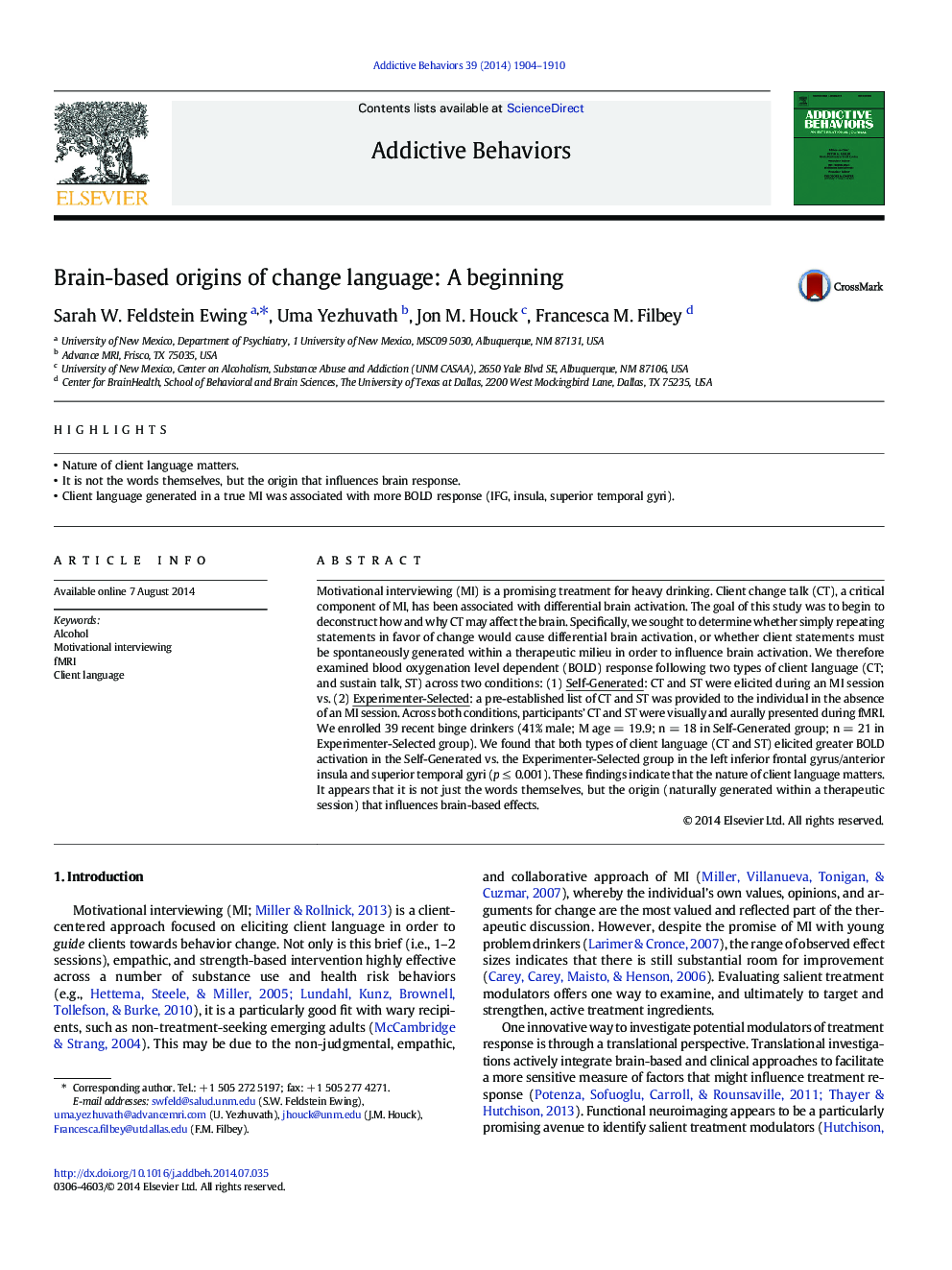| کد مقاله | کد نشریه | سال انتشار | مقاله انگلیسی | نسخه تمام متن |
|---|---|---|---|---|
| 898786 | 915342 | 2014 | 7 صفحه PDF | دانلود رایگان |
• Nature of client language matters.
• It is not the words themselves, but the origin that influences brain response.
• Client language generated in a true MI was associated with more BOLD response (IFG, insula, superior temporal gyri).
Motivational interviewing (MI) is a promising treatment for heavy drinking. Client change talk (CT), a critical component of MI, has been associated with differential brain activation. The goal of this study was to begin to deconstruct how and why CT may affect the brain. Specifically, we sought to determine whether simply repeating statements in favor of change would cause differential brain activation, or whether client statements must be spontaneously generated within a therapeutic milieu in order to influence brain activation. We therefore examined blood oxygenation level dependent (BOLD) response following two types of client language (CT; and sustain talk, ST) across two conditions: (1) Self-Generated: CT and ST were elicited during an MI session vs. (2) Experimenter-Selected: a pre-established list of CT and ST was provided to the individual in the absence of an MI session. Across both conditions, participants’ CT and ST were visually and aurally presented during fMRI. We enrolled 39 recent binge drinkers (41% male; M age = 19.9; n = 18 in Self-Generated group; n = 21 in Experimenter-Selected group). We found that both types of client language (CT and ST) elicited greater BOLD activation in the Self-Generated vs. the Experimenter-Selected group in the left inferior frontal gyrus/anterior insula and superior temporal gyri (p ≤ 0.001). These findings indicate that the nature of client language matters. It appears that it is not just the words themselves, but the origin (naturally generated within a therapeutic session) that influences brain-based effects.
Journal: Addictive Behaviors - Volume 39, Issue 12, December 2014, Pages 1904–1910
